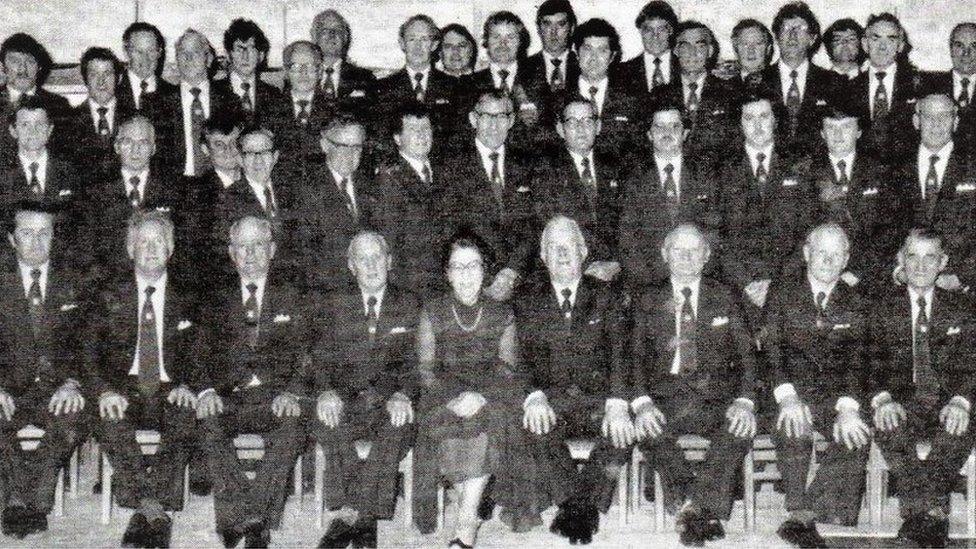Patagonia: Long-lost hymn to be heard again after 100 years
- Published
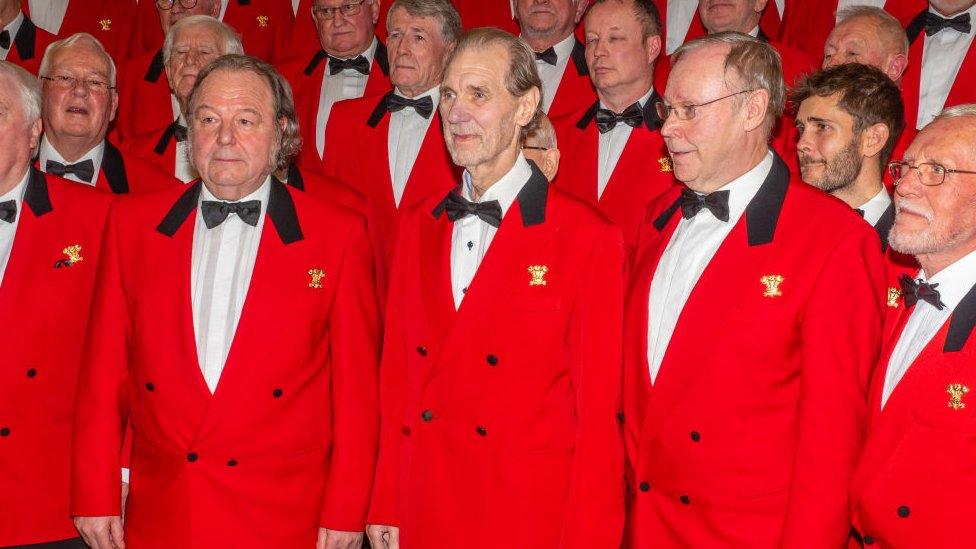
Bydd Myrdd o Ryfeddodau will be performed by the London Welsh Male Voice Choir on Thursday
A long-lost hymn linked to the murders of three men killed while searching for Patagonian gold in the 1800s is to be sung in a St David's Day celebration.
After more than 100 years of hardly being heard, Bydd Myrdd o Ryfeddodau will be aired on Thursday.
It was said to have once been Wales' national funeral song.
Composer Robat Arwyn arranged a new version, which will be performed by the London Welsh Male Voice Choir at St Paul's Church, Knightsbridge.
The hymn, the title of which means "There will be many wonders", was sung in Patagonia after Richard Davies, of Llanelli, Carmarthenshire, John Parry, of Denbigh, and John Hughes, of Caernarfon, Gwynedd, were killed by indigenous people on 4 March 1884.
It was also sung at 1917's National Eisteddfod when poet Hedd Wyn was posthumously awarded the bard's chair after being killed on the first day of World War One's Battle of Passchendaele.
Jeremy Wood, who lives in the Patagonian town of Esquel and runs a travel firm called Welsh Patagonia, said the men were looking for gold when they discovered they were being followed.
A fourth man, John Evans, from Mountain Ash, Rhondda Cynon Taf, escaped with his life.
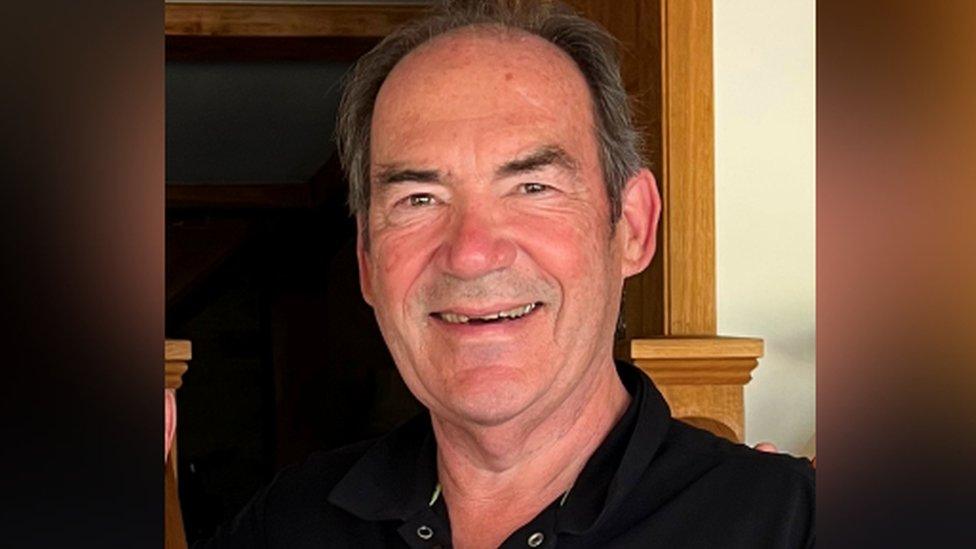
Jeremy Wood said it was sung in 1884 after three men hunting gold in Patagonia were killed
Mr Wood, 72, said after five months on the road the four suspected they were not safe so made a run for home - more than 400 miles (643km) away in Rawson, the capital of Chubut, Patagonia.
Mr Wood said: "During the first two days and nights, they rode along the centre of a river so that they would leave no tracks to follow, and they had to be tied to their horses when exhaustion overtook them.
"Once they thought they were out of danger, they relaxed, stowed their weapons and rode alongside the River Chubut, the main river in Welsh Patagonia."
Allow YouTube content?
This article contains content provided by Google YouTube. We ask for your permission before anything is loaded, as they may be using cookies and other technologies. You may want to read Google’s cookie policy, external and privacy policy, external before accepting. To view this content choose ‘accept and continue’.

But they were not safe and, Mr Wood said, they were attacked at about noon on 4 March.
Mr Evans only escaped as his horse jumped down a steep ravine and, once back at Rawson, a 43-strong posse was rounded up to hunt the killers.
First they went to find the bodies of the men which Mr Wood said had been dismembered and scattered.

The three men were attacked at about noon on 4 March 1884
"One of the founders of the Welsh colony, Lewis Jones, gathered what the vultures had left and buried the remains of the three men together," he said.
The group then sang Bydd Myrdd o Ryfeddodau.
After failing to find the killers, they returned to the site to find the graves dug up and the bodies strewn about again, said Mr Wood.
Once again they were buried and Bydd Myrdd o Ryfeddodau was sung.
Composer Mr Arwyn was told the story by Mr Wood when he visited Patagonia in 2018 and agreed to rework the hymn, having never previously heard of it.
More used to writing from scratch, Mr Arwyn found interpreting someone else's work "challenging".
"I've tried to make it more appealing to a modern audience," the 63-year-old said.
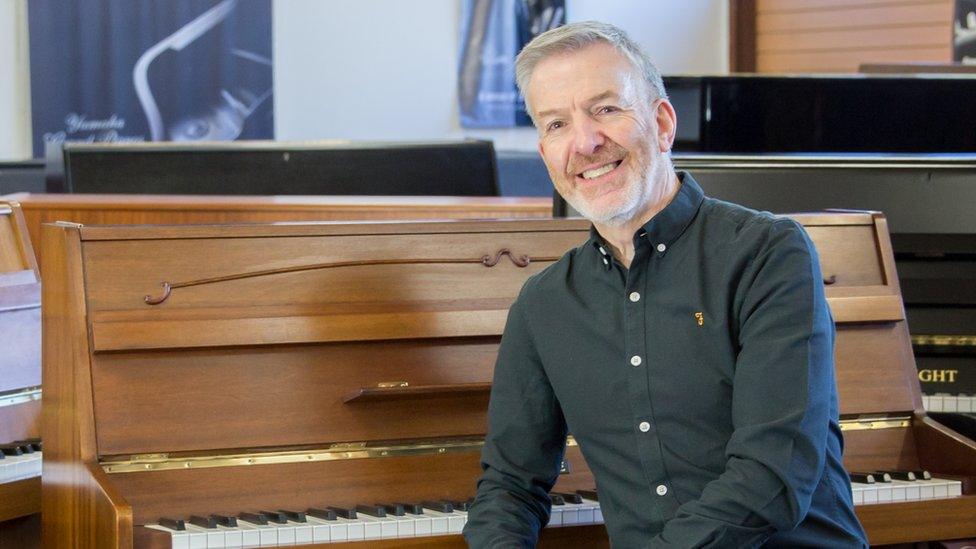
Composer Robat Arwyn has reworked the hymn for the performance in London
He hoped a recording would be made of the hymn being performed but a separate rehearsal in Ruthin, Denbighshire means he cannot make it to London.
But he said it was an honour to be asked rework the hymn.
"I have changed it quite a bit," he said.
"I have thoroughly enjoyed it and I am really happy with the way it has turned out."
Mr Wood said the London event would have extra poignancy for him following the death of his brother Kieron, 73, in Ireland on 25 February.
"It's going to be dedicated to my brother."

FOOD FEST WALES: A culinary tour of Wales is on the menu!
ICONIC WELSH PEOPLE, PLACES AND THINGS: Kiri Pritchard-McLean unearths the best bits from the BBC Wales archive

- Published22 February 2023
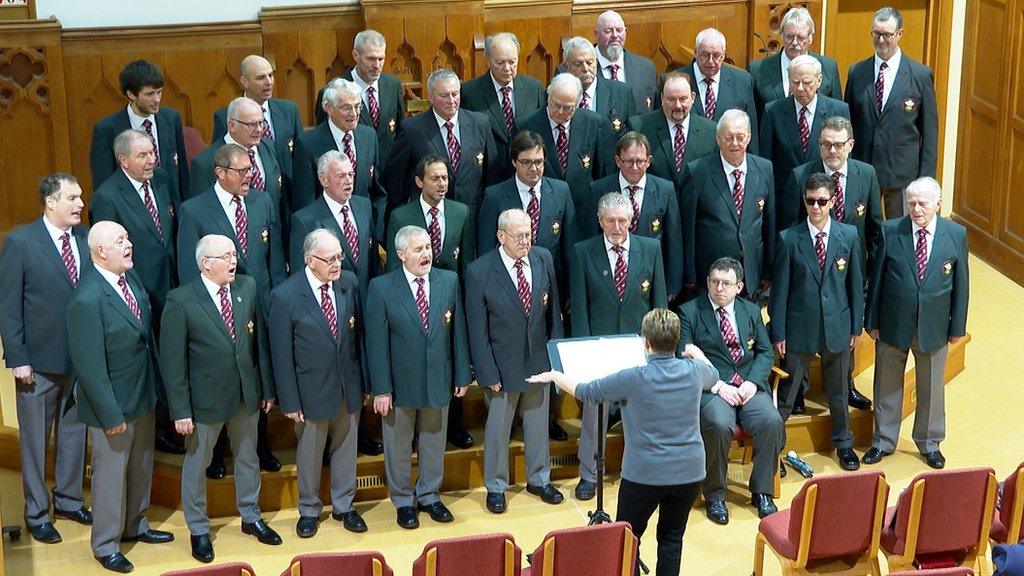
- Published2 February 2023

- Published12 May 2022
